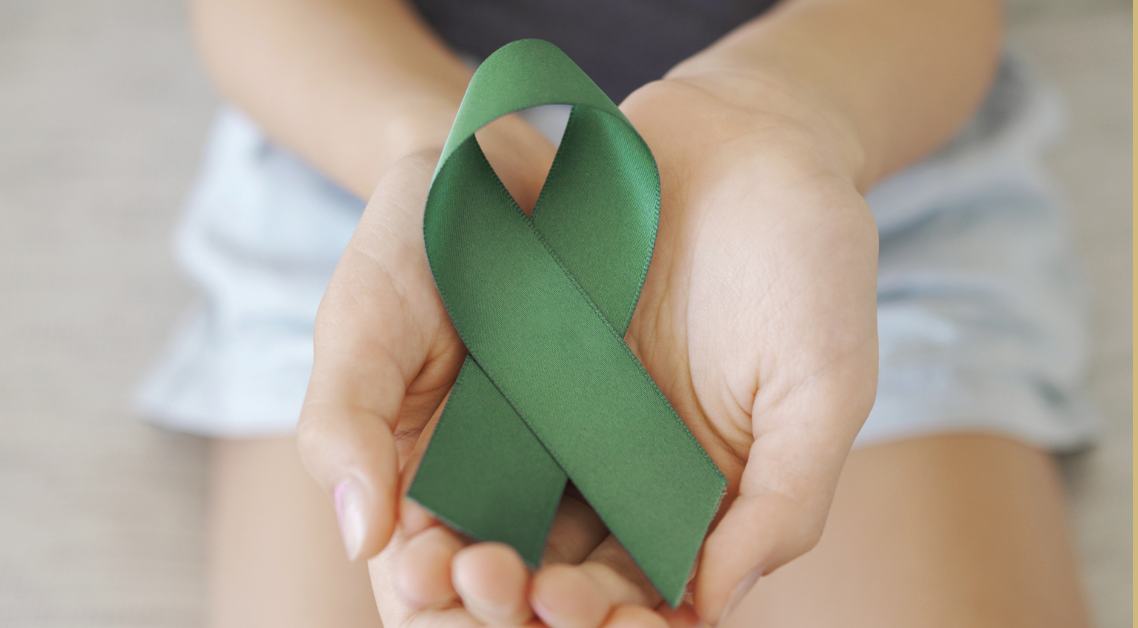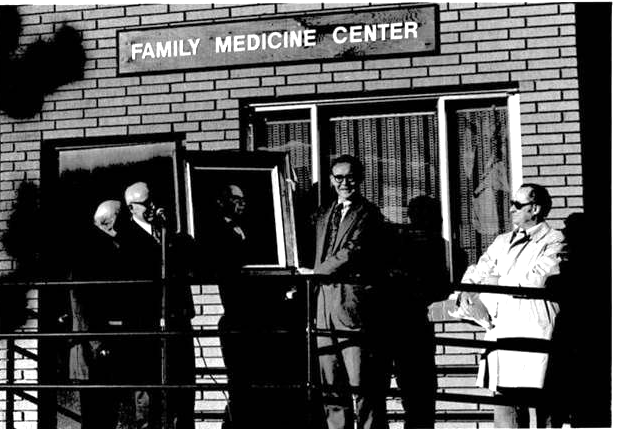May marks Mental Health Awareness Month, a designated, nationwide effort to increase understanding, reduce stigma, and promote support for behavioral and mental health. Family Medicine takes a holistic approach to patient care, attending to health needs at every stage of life while working to address both mental and physical well-being.
That’s why the Department of Family Medicine (DFM) is proud to highlight the efforts of our Behavioral Health team as they educate, heal, and foster open conversations about mental health and behavioral wellness.
In recognition of this important awareness month, Shandra Brown Levey, PhD, Director of Integrated Clinical Behavioral Health Service; Angelo Alago, PsyD, Licensed Clinical Psychologist; and Lauren Tolle, PhD, Behavioral Health Implementation Lead and Licensed Clinical Psychologist—just a few members of our incredible Behavioral Health Team—were asked to share what they wished more people understood about mental health. Their responses highlighted the importance of open conversations, recognizing mental health as essential to overall well-being, and seeking support without stigma. They also provided fun and healthy ways to “get out of your head” along with useful self-help resources.
Why Mental Health Matters
What do you wish more people knew about mental/behavioral health?
Dr. Brown Levey—
“I wish more people understood that mental and behavioral health are deeply connected to every other aspect of health—physical, relational, and even spiritual. It’s not just about treating illness; it’s about cultivating resilience, self-awareness, and the capacity to thrive, even through difficulty. Everyone has mental health, just like everyone has physical health—and caring for it is not a luxury; it’s essential.”
Dr. Alago—
“My wife is in nursing school, so I pick up medical terms easier than usual lately. In biology, homeostasis refers to the body's constant, active work to maintain a stable internal environment. We can help it out with things like eating well, sleeping well, staying active, etc., but it's gotten pretty good at doing its job on its own—it's been doing the same thing for hundreds of thousands of years with the same anatomy. With our mental health, though, what we're dealing with are the intertwining influences of our biology (~200,000 years old), our social structures and norms (anywhere between 5-5000 years old), and the stressors of our modern lives (dynamic and shifting). Do you see what I'm getting at? We're not built for mental health in the same way our body is built for homeostasis—it doesn't come naturally. My goal in saying this isn't to promote hopelessness but rather to normalize our struggles. When we look at it this way, going to see a mental health professional just makes sense—you don't get upset with your car for needing its oil changed, do you?”
Dr. Tolle—
“Something I wish more people knew about mental health is that it is a part of overall health, for everyone, all the time. I think, to a large extent, people do know that, and I think in a medical setting we can get narrowly focused looking at a ‘problem list’ to treat ‘problems’ or needing to bill a diagnosis to get paid. Legislation was passed a few years ago on having access to annual preventive mental health exams but very few if any patients are aware of or take advantage of this that I have seen.”
Guides & Strategies
What, in your experience, are the best coping mechanisms or resources for mental health?
Dr. Brown Levey—
“The best coping mechanisms are the ones that are both accessible and sustainable. For many people, that includes movement, creative expression, time in nature, meaningful connection with others, and practices that foster mindfulness or spiritual grounding. Coping isn’t about avoiding pain—it’s about giving ourselves the tools to face life with clarity and compassion. There are many incredible resources both locally and nationally. I often recommend the Colorado Crisis Services line (1-844-493-8255), Psychology Today, for finding local therapists, and Headspace or Insight Timer for mindfulness support. Within our own system, our integrated behavioral health providers are a fantastic first step for patients—and staff can access the [University’s EAP (Employee Assistance Program)] for confidential support.”
Dr. Alago—
“I'm a huge fan, personally, of what I call ‘disrespecting the mind.’ We get ourselves in trouble when we automatically believe everything we think and even stopping to rationalize negative or unhelpful thoughts can keep us preoccupied with things that just really don't deserve our time, energy, or attention. If our mind is being unkind to us, we can try to put it in its place by throwing a little sass its way: ‘Oh, I'm a failure, am I? Well, why should I pay attention to the thoughts of someone who's such a failure? Gotcha' there!’ Or, ‘Why do you keep asking me to solve these 'what if' questions? I have access to the same information you have! From now on, when you ask me, 'what if?' I'm going to respond with, 'I don't know, you tell me!’ ‘Talking back’ to your unhelpful thoughts with some irreverence and humor can help you get some distance from them as opposed to remaining stuck. [The Centre for Clinical Interventions resources of] 'Looking After Yourself'—is a treasure-trove of self-help resources sorted by problem area. Most of them have quick and easy handouts and worksheets, and some even have full interactive workbooks you can complete at your own pace.”
Dr. Tolle—
“I think the best coping strategies are what works best for each individual, and they may vary on what the source of distress/stress is, what feels sustainable and personal preference or abilities. That said, I have a favorite handout I give frequently to patients from Dialectical Behavior Therapy (DBT) that lists activities that can be helpful with distracting (exercise, walking, cleaning, holding ice), self-soothing (listening to music or sounds in nature, lighting a candle, sinking into a comfortable chair or taking a bath), and improving the moment (sitting in nature, practicing meditation or imagery). There are also healthy habits that have been identified in research that positively impact our wellbeing when practiced regularly that I've heard referred to as the J-GAME (Journaling, Gratitude, Acts of kindness, Meditation (or mindfulness) and Exercise) from the Happiness Lab podcast with Dr. Laurie Santos.”
Finding Joy in Mental Wellness
What have you noticed, within your practice, and personal experiences, are fun and healthy ways to “get out of your head”?
Dr. Brown Levey—
“In both my work and life, I’ve seen how powerful it is to get grounded in the present moment—especially through activities that spark joy or curiosity. Personally, I love making art, playing bass guitar, and spending time with my backyard chickens. These kinds of experiences remind us that healing doesn’t always have to be heavy—it can be playful and nourishing too.”
Dr. Alago—
“I will never stop talking about board games! If you see ‘board games’ and think ‘Monopoly’, boy are you in for a surprise—the board gaming hobby has developed massively over the last 20 years, and it truly does have something for everyone. There are casual party games, brain-bending puzzle games, fast-paced games relying on your physical reflexes, rules-light games that the whole family can enjoy together, super-complex games that take an entire afternoon to get through, games that you can play alone, games about birds, games about dragons, games about fish (those last three are three different versions of the same game)—I have to stop myself somewhere. Visit a board game store and see what speaks to you or email me for recommendations!”
Dr. Tolle—
“With the natural beauty surrounding us, I find getting into nature and hiking one of my favorite activities and ways to get out of my head. If I'm not able to get to a trail, I'll try to get outside and take walks whenever possible. I also practice gratitude with my kids on the way to school, especially on Mondays when they may not be as excited to go to help us all shift our thinking to things we're grateful for.”
As the Behavioral Health Team emphasized, mental health is an essential part of our overall well-being. Whether it’s board games, practicing gratitude, or enjoying nature, caring for mental wellness can be both fulfilling and fun. Mental health awareness isn’t confined to a single month—it’s a fundamental aspect of health, just as important as physical well-being. The Department of Family Medicine’s Behavioral Health Team remains committed to education, support, and advocacy, guiding others on their wellness journey while celebrating their own.
Here are just a few shared items from members of the Behavioral Health Team, offering inspiration to help you find what grounds you and supports your mental well-being. You'll see some of the things they cherish most, along with their favorite hobbies.


Olga Gorshkalova, DO: “I enjoy writing short rhyming stories and turning them into children's books. I do illustrations and publishing myself.”


Christy Thrash, PsyD: “Gardening is important to me because it slows me down, forces patience, and fosters a deeper connection with the little ecosystem that I call my home. Gardening offers so many benefits to my mental health, as long as I view the failures as my instructions for next year's plan and celebrate my successes as the combination of hard-won knowledge, sweat of the brow, good luck, and good timing.”




.png)

.png)